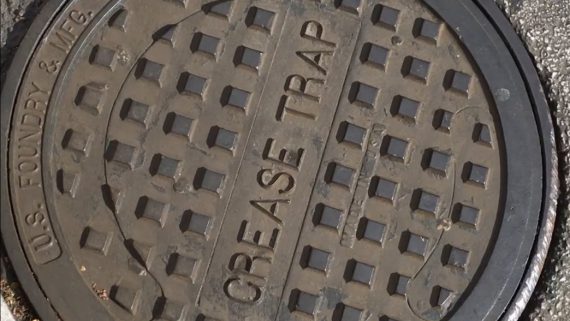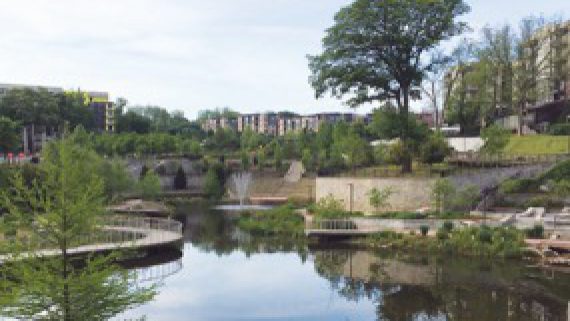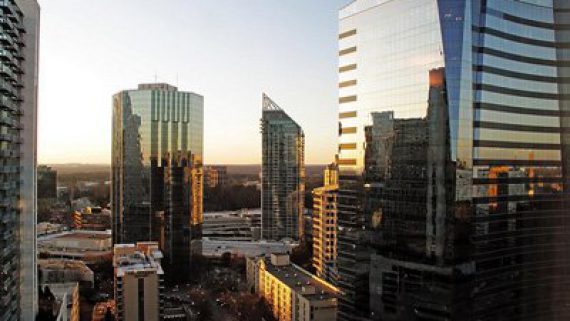Environmental and Construction Enforcement
Office of Watershed Protection
Soil Erosion and Sedimentation Control
Migrating soil from land disturbance sites (construction or private renovations) often creates soil erosion. Erosion is defined as the process by which the land surface is worn away by the action of water, wind, ice and gravity. When soil is disturbed (exposed or uncovered), it becomes vulnerable to being washed into local streams and waterways when it rains. Soil is considered a water pollutant because it can significantly affect water used for public consumption, recreation and habitat. Therefore, the most effective way to control soil erosion is at its source. Erosion control best management practices (BMPs) are required on all land disturbance sites to provide a defense against soil erosion. BMPs can be either structural or vegetative. Silt fences, hay bales and various types of plants, including grasses which when designed, installed and properly maintained help in the prevention of water quality damage, are some examples of typical BMPs.
The City of Atlanta’s Environmental and Construction Enforcement Division protects watersheds by enforcing compliance with State laws and City codes related to erosion and sedimentation control.
1. Planning: Develop an erosion control plan by a certified design professional that addresses erosion and sedimentation control during all phases of land disturbance activities to fit the existing site features, including topography, soils, drainage ways, and natural vegetation.
2. Permitting: Submit proper documents to the City to obtain applicable permits.
3. Scheduling of Operations: Schedule a required PreConstruction Meeting. During this meeting all phases of the project will be discussed. Install initial soil erosion prevention and control practices as a first line of defense against offsite damage prior to initial land disturbance activities.
4. Ongoing Sediment Control: Apply internal sediment control practices as a second line of defense against offsite damage as illustrated on permitted plan.
5. Maintenance: Implement a thorough maintenance program before, during, and after development is completed.
Document for download:
1. As Built Survey Requirements
2. Commercial Final Sign Off Criteria
3. Commercial Final Sign Off Form
4. Engineer’s Certification
5. Engineer’s Certificate Green Infrastructure (For Commercial Project Use Only)
6. Final Plat Packet
7. Immediate Stop Work Orders
8. Revegetation Requirement
9. SFR Final Sign Off Criteria
10. SFR Final Sign Off Form
11. PreCON form
12. Sanitary Sewer Access Form
For inspection request or to report an erosion concern please call 404-546-1305.
Protecting our natural resources, particularly our water, is every citizen’s responsibility. If you see a land disturbance site that is allowing soil to migrate from its boundaries or any other erosion concern, the City of Atlanta welcomes your reporting of that condition. If you choose, your report can be entered as anonymous because your involvement is critical to the protection of our environment.
The City of Atlanta has two enforcement actions which are Notice to Comply and Stop Work Order. A Notice of Comply is implemented when non compliance is observed on a land disturbance site but soil is maintained within the site boundaries. A Stop Work is implemented when noncompliance allows sediment to migrate offsite. An illustration of a Stop Work Order placard is below. In some instances court arrest citations are issued along with a Stop Work Order, and arrest citations are issued if compliance is not gained under a Stop Work Order.
Our Address
Department of Watershed Management Administrative Offices
72 Marietta Street NE
Mon-Fri – 8:15 am to 5:00 pm
City Directory
Need to contact another city department?





